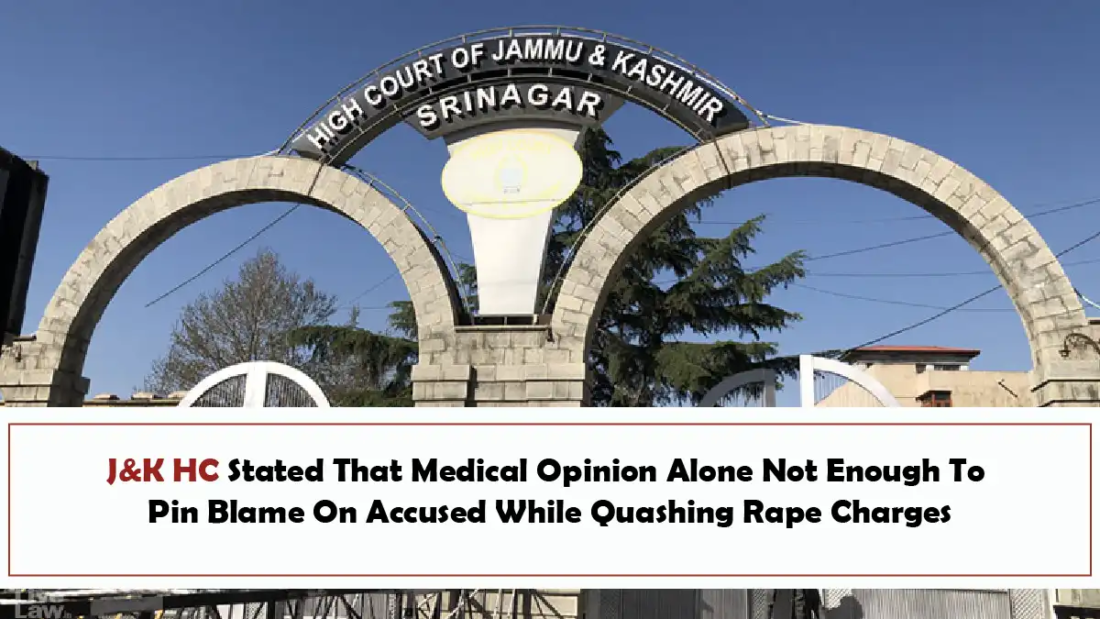Facts of the Case
The case arose from an FIR lodged by the father of a 14-year-old girl who reported that his daughter and her minor friend had gone missing. Following their recovery, it was alleged that both girls had been kidnapped and sexually assaulted by Mr B. The police charged Bashir under Section 376 of the IPC and Section 4 of the POCSO Act, alleging that he had lured the girls into his vehicle, kidnapped them, and committed penetrative sexual assault. In March 2022, the Special Judge (POCSO Court) framed charges against Bashir, which he challenged before the High Court.
Contentions of the Petitioner
The petitioner, Mr B, contended that the prosecution failed to present any evidence, direct or circumstantial linking him to the alleged offences. He argued that both minor girls had voluntarily boarded his vehicle and that their statements under Section 164 CrPC did not support the allegations of kidnapping or sexual assault. He maintained that there was no forensic or testimonial evidence implicating him, and therefore, the charges framed by the Special Judge were unsustainable in law.
Contentions of the Respondent
The prosecution claimed that medical reports had confirmed sexual intercourse had taken place, and that the petitioner had enticed the minor girls, thereby establishing offences under kidnapping and rape provisions. They argued that the victim’s minority and the presence of sexual intercourse alone were sufficient to proceed with the charges and warranted a full trial.
Court’s Observations
Justice Sanjay Dhar critically analysed the girls’ statements and the evidence on record. He noted that the minor victims had clearly stated under Section 164 CrPC that they voluntarily boarded the petitioner’s vehicle and that there was no coercion or inducement involved. The Court emphasized that, “The girls boarded the vehicle of their own volition, uninfluenced by any promise or allurement from the petitioner.”
It further held that the prosecution’s case was unsupported by any material connecting the accused to the alleged sexual assault. Justice Dhar remarked that, “Merely on the basis of the opinion of the doctor that the two girls had been subjected to sexual intercourse a couple of days back, it cannot be inferred that the petitioner was the author of such sexual intercourse.”
He added that, “The prosecution’s case collapses in the absence of any oral or scientific evidence connecting the petitioner to the alleged sexual assault.”
The Court underscored that even though the victims were minors, the lack of any accusation against Mr B in their testimony and the absence of scientific proof like DNA or spermatozoa rendered the charges baseless. Justice Dhar reiterated that at the stage of framing charges, courts must assess whether there is grave suspicion based on credible evidence. He observed that, “Even if the material collected by the Investigating Agency during the investigation remains unrebutted, the same is not sufficient to presume that the petitioner/accused has committed any offence nor does it raise any grave suspicion about the involvement of the petitioner.”
Court’s Order
The High Court found that the Special Judge had erred in framing charges without applying judicial scrutiny to the evidence. It ruled that the material on record did not disclose a prima facie case against the petitioner for any of the alleged offences. Consequently, the Court allowed the revision petition, set aside the order dated 09.03.2022 of the Special Judge, and discharged Mr B of all charges.
Credits: Adv. Deeksha Rai
 Cart is empty
Cart is empty 

